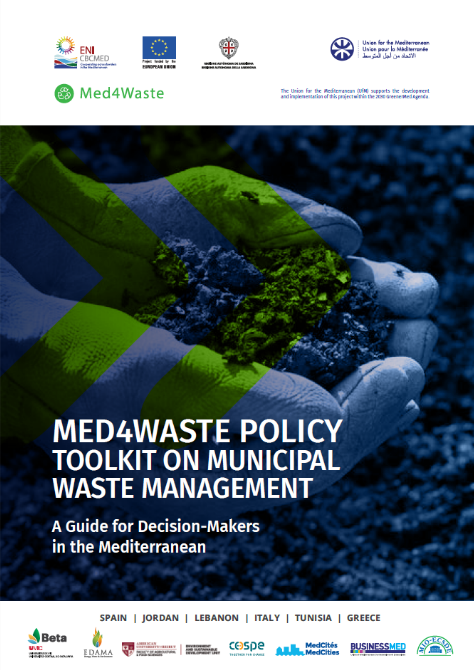 Municipal waste management in the Mediterranean suffers from multiple drawbacks and chronic problems that require strategic solutions and collaboration among various institutions and other stakeholders in order to become sustainable.
Municipal waste management in the Mediterranean suffers from multiple drawbacks and chronic problems that require strategic solutions and collaboration among various institutions and other stakeholders in order to become sustainable.
An array of socioeconomic and political factors affect the policies and strategies that guide municipal waste management in any one country, including the extent of stakeholder participation in the process. These factors are region- and culture-dependent and as a result, countries are adopting different methods to effectively cope with this rising challenge of urban waste management. Nonetheless, a number of lessons could be drawn from national and regional initiatives, programs and processes, successful or not, to inform how to effectively tackle this complex issue for the region.
In the framework of the ENI CBC Med funded project Med4Waste, MIO-ECSDE, with the support of project partners, experts and key players in the region, developed a comprehensive Policy Toolkit on Municipal Waste Management to promote circular economy and better governance in the management of municipal waste in the Mediterranean. This toolkit is a culmination of the operational expertise garnered from the Med4Waste project, which focused on building skills, planning, and decision-making capacities for Mediterranean municipalities and waste management practitioners.
The toolkit capitalizes on the lessons learned from five ENI CBC Med projects—CEOMED, CLIMA, DECOST, MED-InA, and REUSEMED, while it also integrates lessons learned from various other projects and initiatives. The publication takes stock of the current state of municipal solid waste management in Mediterranean countries, considering both national and local contexts and policies, while addressing prevalent bottlenecks.
The policy recommendations are tailored for national, regional, and local authorities, aiming to enhance sustainable municipal waste management and specifically its organic component. The recommendations cover a spectrum of strategies, including the design and implementation of integrated waste management plans, creating a supportive environment for the private sector through incentive systems, and investing in long-term awareness and education. Additionally, the toolkit underscores the importance of active participation in regional and sub-regional cooperation efforts to address common waste management challenges. Stakeholder engagement and public participation are highlighted as crucial elements, along with efforts to strengthen capacity and competences.
The toolkit is poised to become a pivotal resource in guiding investment plans, sorting initiatives, delivery of waste management services, monitoring, education, and advocacy efforts in the pursuit of a cleaner and more sustainable future for the Mediterranean region.
The Policy Toolkit is available in English, French and Arabic via the link below:
Read in French here